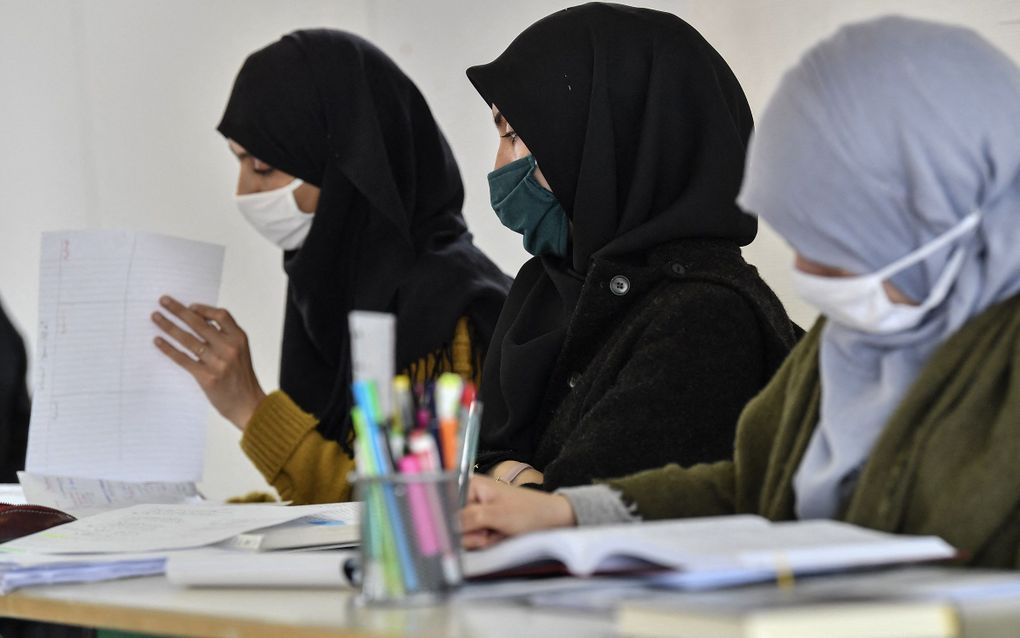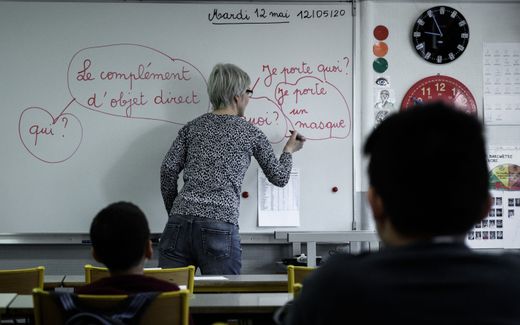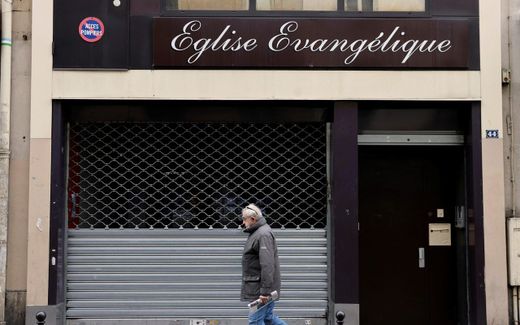French concerned about religious clothing at school

Muslim students in France. Photo AFP, Philippe Desmazes
Western Europe
Three-quarters of the French population worries about the growing number of religious outfits at school. That is shown by a journalistic survey published on Wednesday.
About 43 per cent of the 1,010 participants of the survey indicated that they are “completely worried” about religious clothing in schools. Another 32 per cent is “rather worried” about the phenomenon. That is reported by CNews which conducted the survey.
Especially older people are concerned about the trend. Of those aged 65 and over, 87 per cent says to be worried. In the age group of 18 – 24, only 42 per cent seems to be worried to some extent.
Ban on religious clothing in schools
In 2004, the French government banned wearing religious symbols or clothes in state schools and universities. This legislation fits within the French tradition of secularism. Already in 1905, France decided to separate the State from the Roman Catholic Church. Protestants were happy with this law because it made them equal to the Roman Catholics in a political sense.
In theory, this separation between Church and State means that the State does not interfere with religious matters. But often, the French interpret the law as the State discouraging civilians from joining religion and expressing that religion in public.
Incidents with religious symbols skyrocket
Recently, news broke out about 144 breaches of the law on secularism in schools in the second quarter of this year. RTL news writes that this number amounted to 97 cases in the first quarter. The overwhelming majority of the breaches concern Islamic students. Incidents include students who refuse to remove their Islamic veil or desire to wear “traditional outfits” or pupils who reject certain teachings, refuse to go to the swimming pool or watch specific video clips, RTL writes.
According to French police analysts, the rise in incidents coincides with the period of Ramadan, the Islamic period of fasting. Furthermore, police analysts argue that the rise of individualism causes students to think they can negotiate with principals on their own wishes.
The police report states that it is worrying that teachers are targeted more often by the students in question or their parents. According to the officers, “identity influencers” have used the phenomenon to challenge the 2004 law and encourage girls to report incidents as “victims of ethnic screening.”
The number of reports of breaches of the law has increased. According to the police, teachers are more inclined to report incidents since the attack on the history teacher Samuel Paty, who was beheaded by a Muslim for showing cartoons of the Islamic prophet Muhammed in his class.
Related Articles






